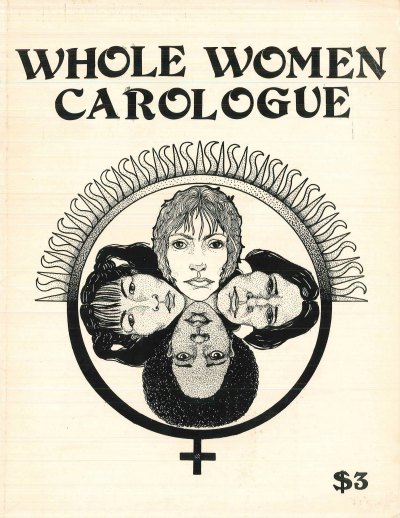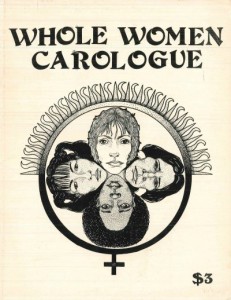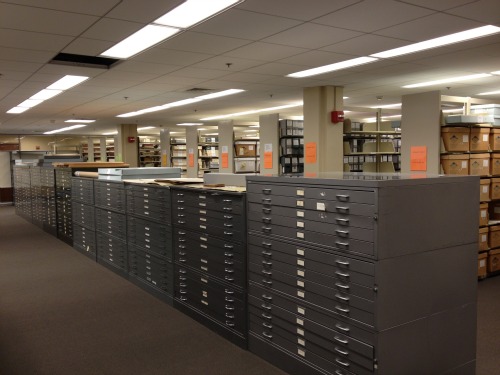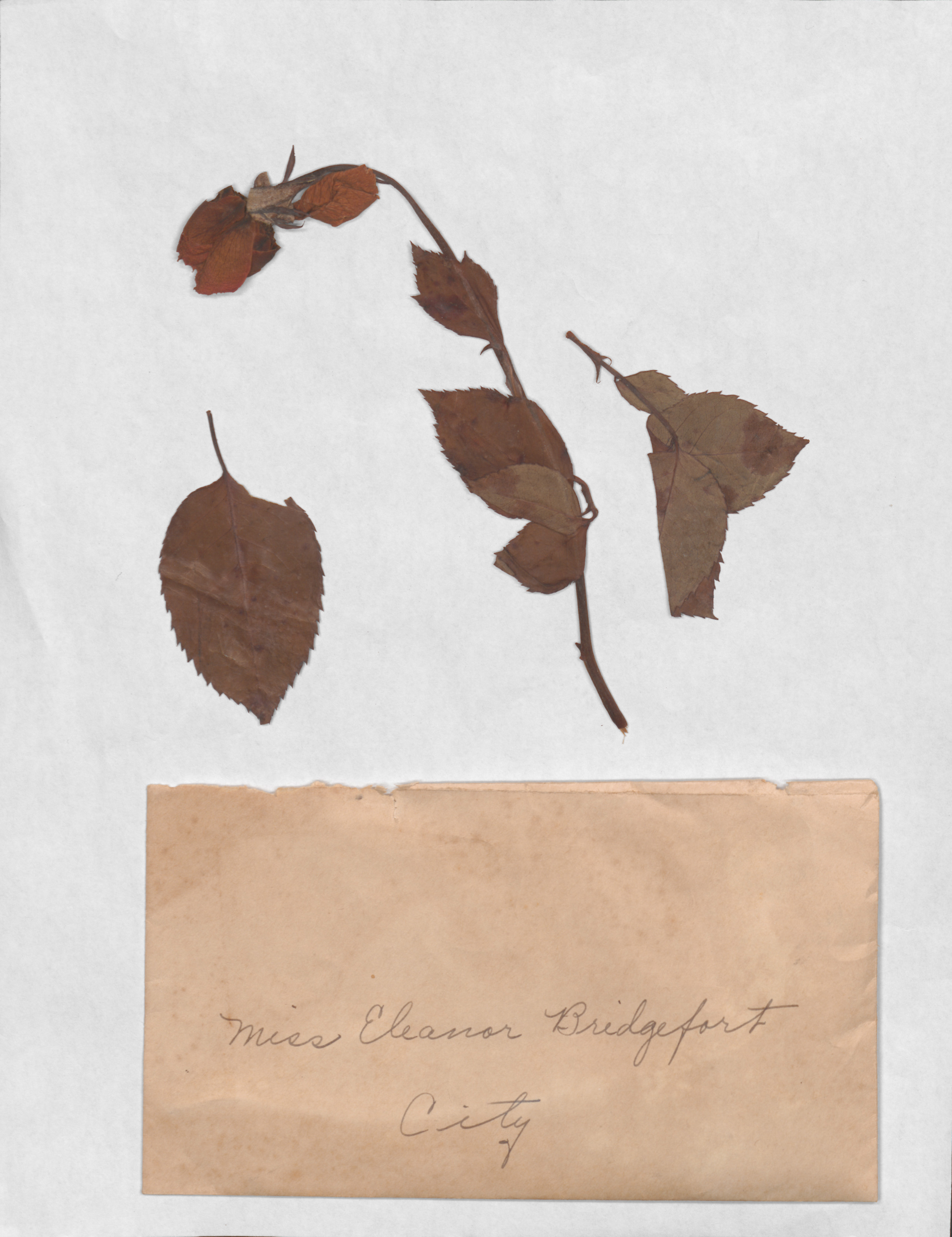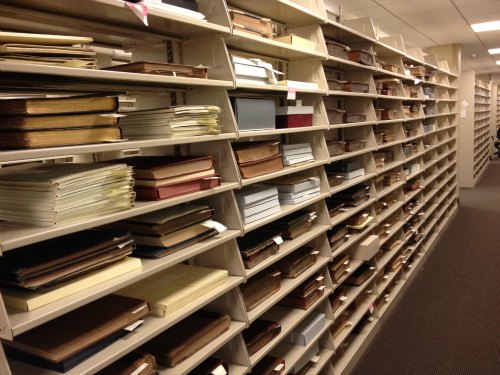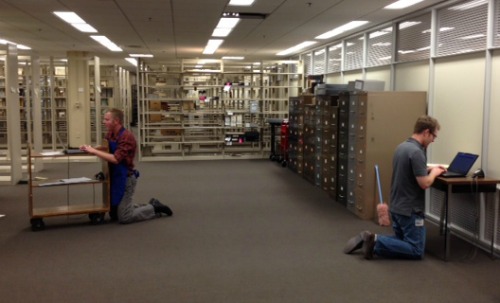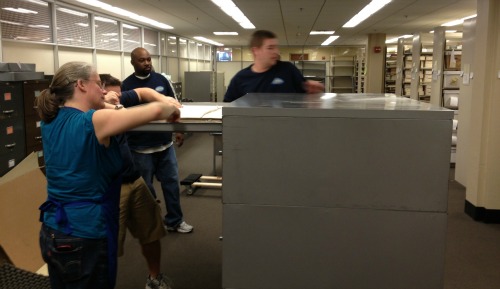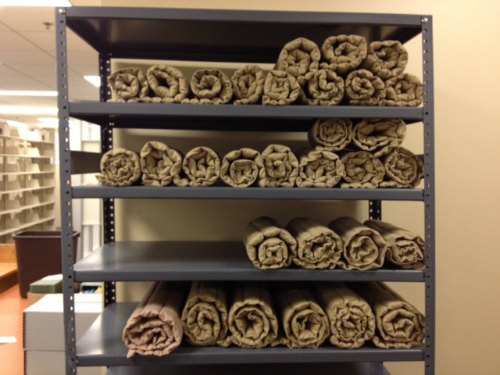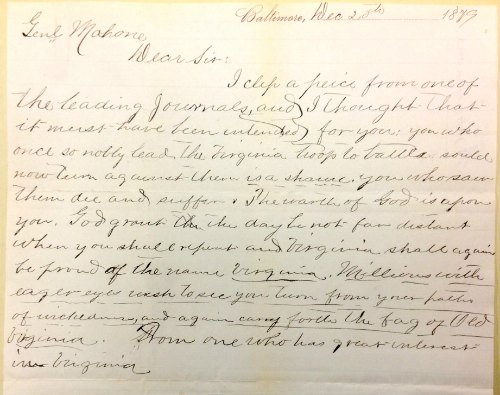The Picture File is a collection that covers an expansive scope of visual history. With over 6,000 items spanning the 17th to 20th centuries, it is the kind of collection that makes mining the African American experience both exhaustive and exciting. This reality is best exemplified by the presence of this photograph located in the Geographic Series.
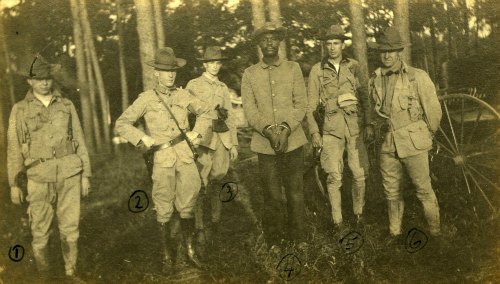
At first glance, the photograph is rather striking, if not disturbing. An African American man standing with hands shackled, surrounded by four uniformed white men. The back of the photo however describes a different story, “Members of the Georgia Hussars with [unidentified African American man] at Clyo, GA in 1908(?) to prevent lynching of prisoner.” The inscription further notes, “This negro afterward died of tuberculosis and syphilis in Chatham County Jail while awaiting a new trial on appeal.”
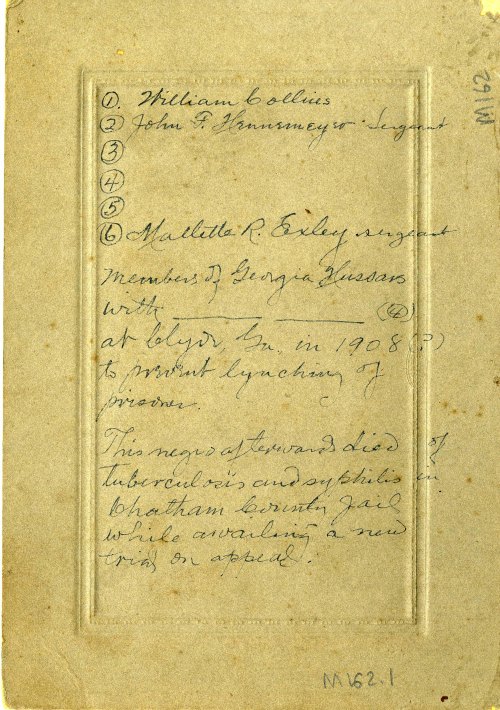
The historical record of local protection against the lynching of African Americans is indeed a controversial one. But this interesting image at least captures the actual presence of authorities standing guard against violence against this incarcerated man.
Post contributed by John Gartrell, Director of the John Hope Franklin Research Center for African and African American History and Culture. This is the third in a series of posts on interesting documents in our collections to celebrate Black History Month.



